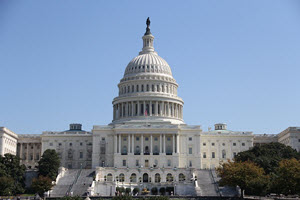Posted in Blog, General, John Polgrean, News & Articles

On June 3rd, the U.S. Senate passed the House version of the Paycheck Protection Program Flexibility Act of 2020. The President is expected to sign shortly. This bill extends and clarifies some of the provisions regarding the Paycheck Protection Program (PPP) that was included in the original CARES Act. The following is a summary of the mains points of the bill:
- PPP borrowers can now choose to extend the eight-week period for expenditures of “covered costs” to 24 weeks. The original eight-week period can still be used if a borrower desires. This additional time is designed to make it easier for borrowers to use the full amount of the funds and reach the full forgiveness for the amount borrowed.
- The payroll expenditure requirement has dropped from the original amount of 75% to 60%, but it is now a cliff, meaning if a borrower does not use at least 60% of the funds borrowed on payroll costs, then none of the loan will be forgiven. Previously the requirement was that 75% of the funds borrowed needed to be used on payroll costs, but if not, the forgivable amount was only reduced by the percentage below 75%, not completely eliminated.
- PPP borrowers can use the 24-week period to restore their workforce levels and wages to pre-pandemic levels. This now must be done by December 31, 2020. The original requirement was June 30, 2020. This will give borrowers a six-month extension.
- The legislation includes two new exceptions allowing borrowers to achieve full PPP loan forgiveness even if they do not fully restore their workforce. Previous SBA guidance in the form of frequently asked questions already allowed borrowers to exclude from those calculations, employees who turned down good faith offers to be rehired at the same hours and wages as before the pandemic. This new bill allows borrowers to adjust because they could not find similarly qualified employees for unfilled positions by December 31, 2020 or were unable to rehire individuals who were employees on Feb. 15, 2020 due to COVID-19 related operating restrictions.
- PPP Borrowers now have five years to repay the loan instead of two. The interest rate remains at 1%.
- Borrowers can now defer the employer’s share of FICA payroll taxes for two years under the CARES act provision. 50% of the payroll taxes will be due in 2021, with the remaining 50% due in 2022. In the original CARES act, PPP borrowers were unable to participate in this deferral.
If you would like to speak with one of our attorneys regarding business issues caused by the novel coronavirus pandemic, contact us by clicking here or by calling (603) 883-0797.
Author: John S. Polgrean.
This blog is intended for informational use only. The information contained herein should not be construed as offering legal advice or a legal opinion.
